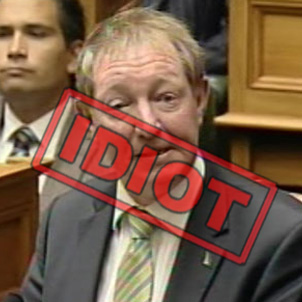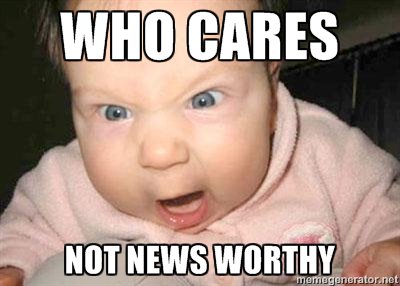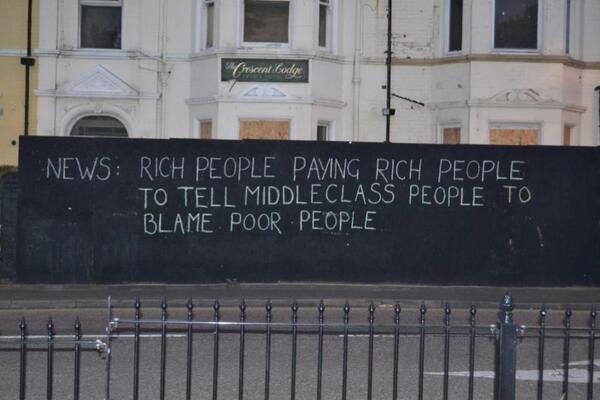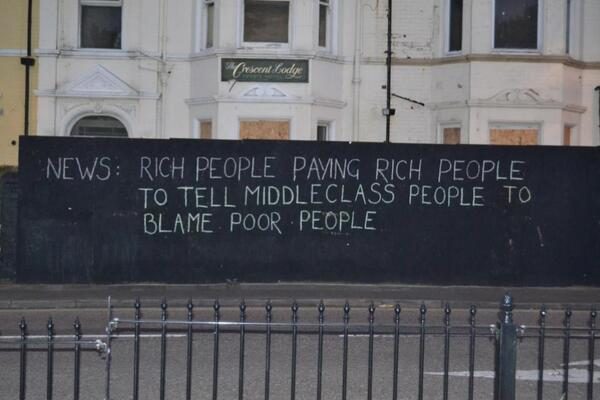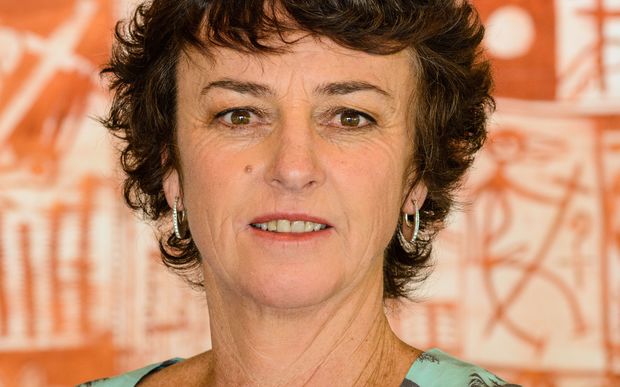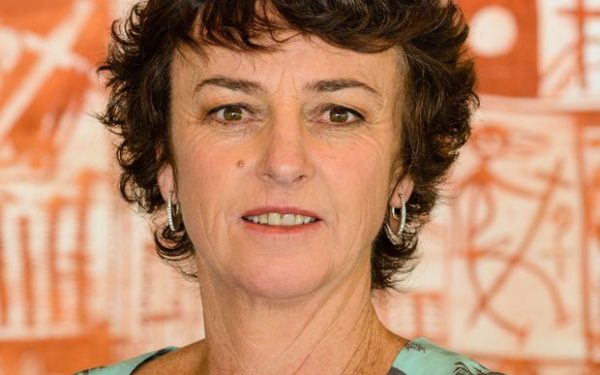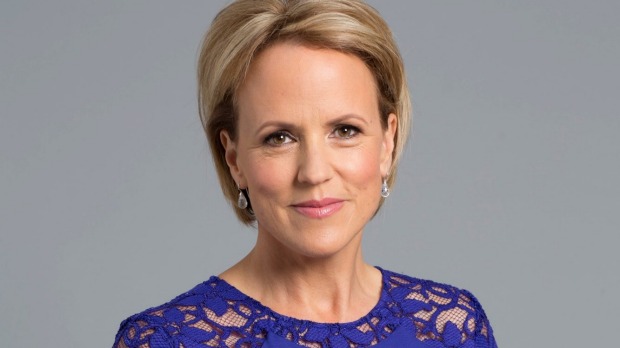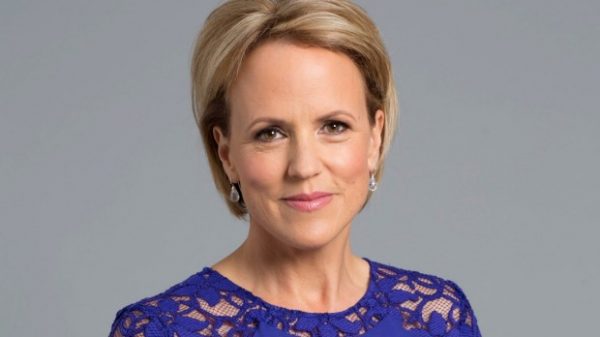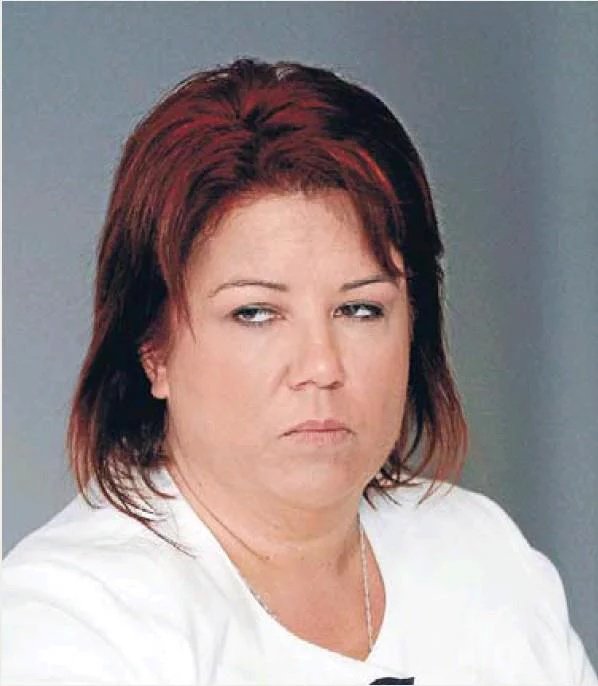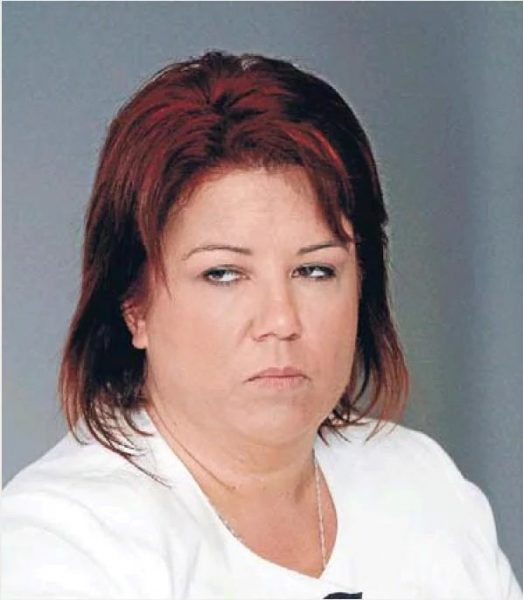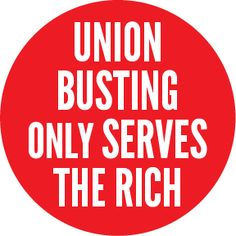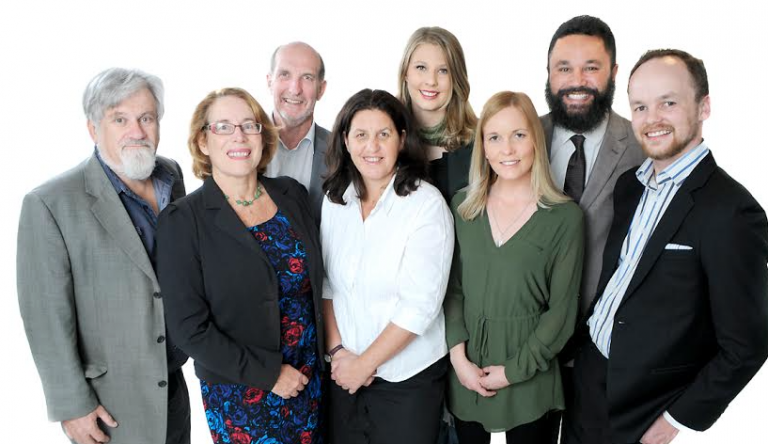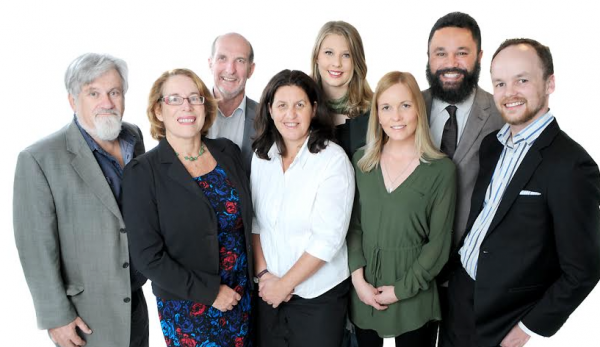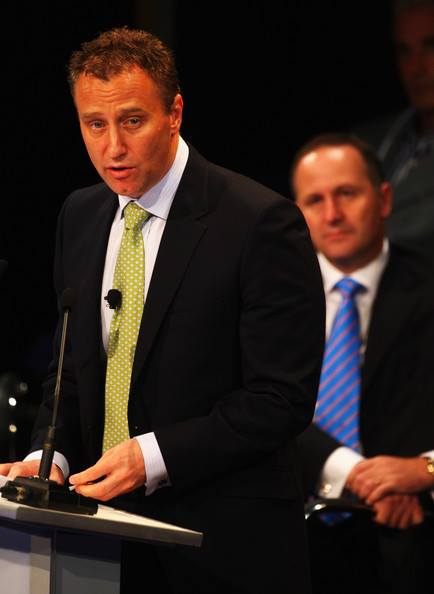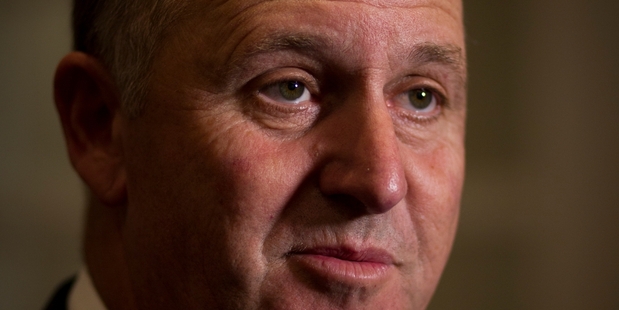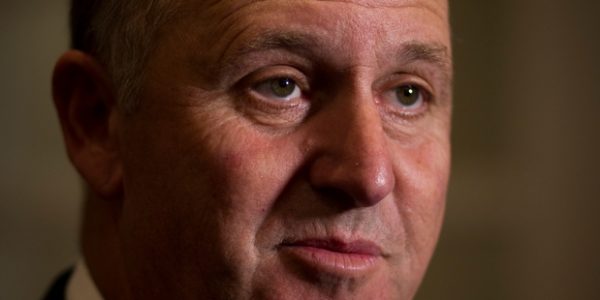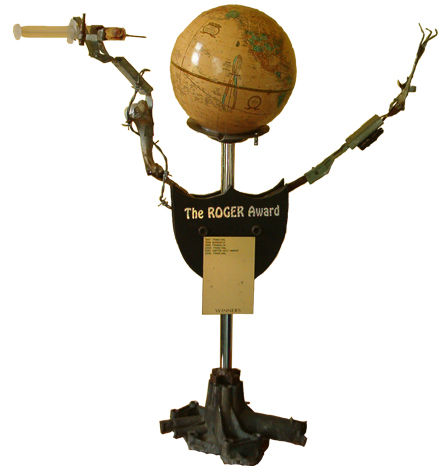
The six finalists for the 2015 Roger Award for the Worst Transnational Corporation Operating in Aotearoa/New Zealand were, in alphabetical order:
Apple
Bunnings
IAG/State Insurance
MediaWorks
Serco
Westpac
The criteria for judging are by assessing the transnational (a corporation with 25% or more foreign ownership) that has the most negative impact in each or all of the following categories: economic dominance – monopoly, profiteering, tax dodging, cultural imperialism; people – unemployment, impact on tangata whenua, impact on women, impact on children, abuse of workers/conditions, health and safety of workers and the public; environment – environmental damage, abuse of animals; and political interference – interference in democratic processes, running an ideological crusade.
The judges were: David Small, a lawyer and Senior Lecturer in Education at the University of Canterbury; Dean Parker, Auckland writer and former Writers’ Guild delegate to the Council of Trade Unions; Dennis Maga, union activist from the May First Movement Philippines, organiser of FIRST Union and founder of Migrante and UNEMIG; Sue Bradford, community activist with Auckland Action Against Poverty and Economic and Social Research Aotearoa (ESRA); and Deborah Russell, feminist, social and political commentator and tax expert, Tertiary Education Union member, and candidate for the Labour Party in 2014. The winners were announced at a Palmerston North event on the night of Saturday April 30th.
Winner
IAG/State Insurance was a finalist for the fourth consecutive year, which will be no surprise to anyone who has lived in Christchurch since 2010. This time the nomination was for two major reasons. To quote the nominator: “Economic dominance (specifically insurance market dominance). I draw your attention to the detail hidden in this Press article (19/2/15) which reveals that IAG discloses ‘a significant portion’ of its Canterbury quake costs in ‘the lower tax jurisdiction of Singapore’ and thus paid ‘an unusually low tax rate of 10% in the first half of 2015’. Note that also that IAG’s Chief Executive Officer (CEO) was the highest paid CEO in NZ in the 2014/15 financial year, on $4.59m. There’s money to be made from other people’s misery.
“And impact on people. Five years after the Christchurch earthquakes started the insurance transnationals (of which IAG/State is by far the biggest) are still making life hell for thousands of Christchurch people. IAG/State is far from alone in this but it is the biggest and some of its practices are the worst. In 2015, State has pressurised its ‘too hard cases’ in Christchurch to accept a cash settlement and become responsible for their own repairs or rebuilds. This means State wants to walk away from its contractual obligations to those customers. There are still State customers living in caravans and garages. Things have got so bad IAG is among the insurance companies and Government bodies which are the subject of a claim to the Organisation for Economic Cooperation and Development (OECD) for breaches of its Guidelines for Multinational Enterprises. As has been said before in previous Roger Awards, what has happened, and is continuing to happen in Christchurch, sets a very bad precedent for what the rest of the country can expect from IAG/State and the other insurance TNCs in the event of a major disaster”.
The Judges’ Statement,
by Chief Judge Sue Bradford says: “For three of us (five judges), IAG was a clear winner.
“Dennis Maga: This is a consistent finalist and far worse compared to others. IAG should be exposed and condemned publicly because of their economic dominance, low tax rate, high paid CEO and the pain they have caused to Christchurch earthquake victims.
“Deborah Russell (summarised): IAG has behaved in a callous fashion with respect to people in Christchurch by refusing to pay out insurance & engaging in shoddy repairs. People who feel insecure, who do not have a place of refuge, and who have no place to call home, can’t function well in our society. This state of insecurity has a particular impact on women who are usually the people responsible for making a home and ensuring children have a safe place to be. Children are badly affected when living in insecure environments. IAG also deserves the Award because they have simply refused to play by the rules of the business game. Whatever else may be said of the other five finalists, they have at least played within the rules (perhaps only MediaWorks could also be described as not playing by the rules). The rules of insurance are very clear. The insurer takes the risk, assesses it and charges a price. IAG took peoples’ money but it has not taken the risk. Instead it has tried to shift the risk back to its customers.
“Sue Bradford: From the perspective of someone outside Christchurch it seems incredible that IAG has had such a free run. The degree of suffering for which they have been responsible from just after the earthquakes up to the present day seems phenomenal and abhorrent. Adults and children have suffered in all sorts of ways, with life options closed off, mental and physical illness, broken relationships, financial hardship and more. Alongside other institutions, including Governmental, IAG have been part of presenting an impenetrable wall that people can’t get through to resolve their housing and insurance issues. In terms of degree of harm inflicted, even just looking over the past year which is the subject of this Award, the level of damage caused is high compared to that perpetrated by the other nominated companies. There is an ecological aspect also, in terms of the impact of IAG’s approach on the built environment in Christchurch”.
“Delay, Deny, Defend”
The separate writers of the Judges’ Report concluded: “In one respect the homeowners of Christchurch were fortunate: their insurance policies provided for full replacement of damaged properties. As happened in Australia following the (2011) Queensland floods, the New Zealand insurance industry has now switched to insuring homes for fixed amounts, offloading onto policyholders the responsibility for understanding the cost of replacement following a future disaster when resources are stretched and fly-by-night builders take the money and vanish, leaving dodgy work to be patched up.
“For IAG and other private insurance companies in the uncompetitive and inadequately regulated New Zealand market, the lessons from the Canterbury earthquakes are straightforward: offer less and charge more, while meantime blaming the Government for the effects on the citizens of Christchurch of five years of ‘delay, deny, defend’. The New Zealand government has given unwarranted credibility to the industry’s PR line by its own inept and often obstructive response to the disaster, by its failure to step up to its regulatory responsibilities, and by failing to step clear of the strategic alliances and networked relationships that make Government complicit in the insurance industry’s betrayal of legitimate customer expectations. But, as the dominant player in this sorry tale, IAG/State Insurance is a richly deserving winner of the 2015 Roger Award”.
Runner Up
Serco was a new entrant but a thoroughly worthy one. One of its nominators wrote: “Serco has a global reputation for dishonesty, corruption & poor human rights. That tendency has been very clearly demonstrated in their time in New Zealand. Serco’s Fight Club mentality is a real response to a culture created from the top”. And to quote another nominator, who starts by quoting a blogger: “’Serco aren’t water. They’re not air. They aren’t some kind of vital part of life. They’re not a force of Nature or a building block of New Zealand’s society. They’re a British corporation which has expanded so dramatically in the age of outsourcing that they have found it impossible to successfully manage the range of contracts they bid upon. Don’t take it from me, listen to their Chief Executive: ‘I was counting my days on the basis of how many really, really shitty bits of news happened a day, and it used to be four,’ said Soames. ‘If I hadn’t had my four bits of bad news, I knew something was wrong. I knew there was something I didn’t know”’.
“It gets worse when you think that the bad news involved sexual and physical abuse of inmates in detention centres, prisoners escaping and errors in clinical data management which led to people dying. Forget the Chief Executive; the true cost of Serco comes from the degradation of services which are deemed essential to a functioning society. Schools, hospitals, prisons. All funded by taxation. Here’s the thing. Serco, regardless of whether they’ve failed to ensure a prison works properly, failed to deliver medical services or ensure schools have adequate support staff, don’t stop. They don’t stop attempting to expand into new areas. They don’t stop, even when it’s clear that their business model is the reason for their numerous failures. Because their aim is to make a profit first, deliver services second. Which is exactly why wherever politicians employ Serco, the public get second class services. Serco has become synonymous with the face of privatisation in New Zealand”.
From the Judges’ Statement:
“Dean Parker – Handing prisons over to private companies seemed at the time totally insane. Private companies’ sole concern would be capital gain, surely? Social benefit would be of little concern. Now this has been shown. We need to highlight Serco as an example of what happens when areas of social need are handed over to private market operators out to make a fast buck.
“David Small (summary) – Serco’s neglect and abuse has been thoroughly reprehensible – they have been charged by society with looking after people who are compelled to be in the prison system, and they make a lot of money doing this.
“Dennis Maga – Have benefited from privatisation of the Government’s services and displayed serious mismanagement.
“Deborah Russell – IAG and Serco are the worst offenders because of their callous treatment of vulnerable people who have no choice about whether or not to deal with them. Serco has enabled abuse of prisoners and has done so while making huge profits. Further, it has collaborated in the abuse of NZ citizens in Australian detention centres.
“Sue Bradford – Their treatment of prisoners at Serco’s privately owned prison in Mt Eden has been repulsive, but there are several reasons why I’ve put Serco at no 2 instead of no 1. (a) State-run prisons are not run well either – privatisation alone cannot be blamed with the way our society deals with those it locks up. Just as much harm can be done by a public organisation as a private one. (b) IAG has had a free run from Government – Serco hasn’t. In this past year it has had to pay massive fines to Government and has had its contract for Mt Eden Prison cancelled. In Social Development, the Minister is also now very clear that contracts will not be let to Serco in the social services sector, something that was mooted much earlier on. (c) I think we need to be conscious of not being overly influenced by our knowledge of how Serco acts in other jurisdictions”.
A Close Third
Bunnings was also making its first ever appearance in the Roger Award. The grounds for its nomination were “displaying contempt for its workers and their rights. This year (2015) it has demonstrated its’ contempt for workers by seeking the casualisation of workers’ hours. Under Bunning’s proposed hours of work clause, the company is seeking the power to change workers’ rosters every four weeks, subject to a two-week notice period. Bunnings has been quick to note that this is subject to consultation, a step down from the current standard of mutual agreement. When the change is a one-off or to cover an unforeseen event the consultation and notice period is reduced to only seven days. Workers who find their new schedules clash with their existing family and other commitments are required to provide details of those commitments in writing within three days of being given the roster; however there is nothing compelling Bunnings to take that into account or to adjust schedules to fit workers’ lives.
“Workers’ voices are being shut out of the rostering process. Under Bunnings’ proposals workers will go from having an equal say over their roster to no say. Where a worker doesn’t comply with roster changes they are subjected to disciplinary procedures…. Bunnings’ has failed to exhibit good faith during collective bargaining. While bargaining has not yet finished, it has already passed on a wage increase to non-members, and is working hard to try and de-unionise stronger stores. Bunnings’ managers are notorious for their anti-union bullying. Union members are subject to harassment, told that the union is a waste of money and that there is no value in joining the union. Managers also try to talk members out of taking strike action.
“Workers are afraid that their family time is going to be put at risk. Family comes first, that’s why workers are fighting so hard to have a fair say over their rosters. But the company is also proposing other insidious changes including performance pay instead of pay progression, introducing the discriminatory youth rates, restricting union access, reducing rights around public holidays and removing the expiry dates for disciplinary warnings so they would stay on a worker’s file forever. This is all part of Bunnings’ ruthless attempt to squeeze out as much profit from New Zealand as possible.
“Yet it is not just workers who suffer, but customers do too: Bunnings guarantees to beat lower advertised prices by 10%, but this is only made possible by the numerous exclusive supply contracts that it has, stocking brands and products that other hardware retailers don’t stock. These products are often inferior; when activists chained themselves to the entrance to their New Lynn store (Auckland), store managers grabbed a bolt-cutter off the shelf and attempted to cut the chains, only ending up breaking the bolt-cutter instead. Workers have been striking across the country since September (2015), including a nationwide strike and a store shut down in New Lynn. Some stores – like in Dunedin and Mount Maunganui – have walked off the job five times”.
From the Judges’ Statement:
“We want it noted that Bunnings came a close third, nearly but not quite equal runner-up… Dennis Maga did not rank or make any comment about Bunnings, to avoid conflict of interest due to his role with FIRST Union (which was in dispute with that company at the time of the judging process).
“Dean Parker – Every company seems to have stumbled upon this new weapon, flexible hours, as a way of squeezing its workforce. Bunnings was clearly the one that took the lead in this last year.
“David Small – Bunnings’ very clear union-busting agenda constitutes real political interference in my view. They are using their economic muscle to take over and degrade a significant part of NZ society and economy.
“Deborah Russell – Bunnings’ treatment of its workers and its continued efforts to impose zero hours contracts on its staff show that they are determined to exploit NZ workers. However, we have our own home-grown example of even worse employers – Talleys. I am loath to give Talleys any opportunity to claim they are not as bad as other employers.
“Sue Bradford – Bunnings must clearly be held to account for the attempts by its Australian owners Wesfarmers to maximise profits by attacking the right of its workers to have some control over the time they can spend with their families. There are also environmental issues here with the nature of the products it sells, with issues around sourcing and lifetime of products. However it is not a monopoly (in regards to economic domination) – and the impact on people is not at as severe a level as that inflicted by either IAG or Serco”.
The Also Rans
Westpac is a recidivist Roger Award offender, having been a finalist several times, one of three equal runners up in 2011, and the joint winner in 2005 (with BNZ). From the nominator: “This year (2015) the cartel of Australian-owned banks, ASB, ANZ, BNZ, & Westpac racked up a staggering profit of $4.59 billion dollars. Westpac’s share of this was $916 million for the year to September 30. To achieve this they continue to screw their workers. The latest round of restructuring, in July 2015, resulted in the loss of almost 100 jobs. Westpac’s staff numbers for 2014 were down 3% from the previous year, and 7% from 2012.
“Westpac New Zealand’s Chief Executive David McLean, who was appointed in February 2015, took home about $1.8m. Not bad for nine months work. Westpac has retained the bulk of the eight year Government banking contract, following a tendering process which dragged on for years. Westpac has held this contract since 1989. Such is the volume of the contract that one banking source claimed it enabled Westpac to effectively determine the timing of payment settlements between New Zealand banks.
“But by far the most heinous action thus far by Westpac, and the main reason for this nomination, was the handing over to the Police of Nicky Hager’s private account information. Court records show Westpac handed over ‘almost 10 months of transactions from Mr Hager’s three accounts’ at the request of detectives investigating the hacking of Whale Oil blogger Cameron Slater’s email and social media accounts. Other companies that were asked for Hager’s private details told Police to come back with a court order, which would have legally obliged them to surrender the information”.
From the Judges’ Statement:
“We felt uncertainty around Westpac’s exact position on the Nicky Hager data release, as there was no clear ‘smoking gun’ on this. In terms of the bank’s impact on staff, Westpac does not treat its workers quite as badly as, for example, the ANZ does – the winner of the 2014 Roger Award. We also felt that it is up to Government to take action on the tax dodging by Westpac and other entities”.
MediaWorks was another making its first appearance in the Roger Award, specifically for TV3 killing off Campbell Live. “The grounds for nomination are political interference, by killing off the only current affairs show anywhere on TV that actually took seriously its mission to be the voice of the people and to hold the powerful to account. And considering that TV3 replaced John Campbell with Rightwing mouthpiece Paul Henry, another ground for nomination is running an ideological crusade. The New Zealand Herald article headline ‘Campbell’s Crusades Irked TV3 Bosses’ (23/5/15) puts it in a nutshell. The article says that TV3 management considered that the show ‘over-emphasised charitable fundraising, and coverage of the aftermath of the Christchurch earthquake, GCSB spying and child poverty’ (as well as subjects like Pike River). There was plenty of evidence that not only did Campbell Live piss off TV management but also senior figures among the directors with close connections to the Government and the Prime Minister.
“To add insult to injury Campbell Live was, at first, replaced by yet another Australian police reality show, then by a cooking show. And MediaWorks has not stopped there in its relentless drive to kill off current affairs and any kind of serious news. More recently it has announced it is shutting down its newly created 3D current affairs show (which led to a fightback from its journalists). MediaWorks has moved in a heavy-handed fashion to extend the dumbing down of its programmes into the one remaining area (news and current affairs) that had previously stood in sharp contrast to the rest of the dismal crap produced by either major NZ network. It falls nicely into the playbook of capital’s inherent compulsion to provide a lowest common denominator market for advertisers”.
From the Judges’ Statement:
“Dennis Maga would really like MediaWorks to be considered an ‘accomplice’ in its role as a perpetrator of Rightwing propaganda. We also felt that while some staff have been treated badly, key figures would have got big payouts and that, overall, the level of harm to employees, and the numbers affected, do not match the levels of damage inflicted by IAG, Serco or Bunnings. Although the political influence of MediaWorks is high, they are not a monopoly”.
Apple made its first ever appearance in the Roger Award but it was a worthy contender. The nominator singled out Apple’s “massive tax dodging in New Zealand. The primary evidence is John Campbell’s First Person podcast on Radio New Zealand (29/10/15, http://www.radionz.co.nz/programmes/first-person/story/201776580/first-person-with-john-campbell-apple’s-high-ideals-and-low-tax-bill). This is particularly egregious as Apple is currently the most profitable company in the world. Nor is it something confined to Apple’s NZ operations – it dodges taxes globally, to the tune of tens of billions of dollars, including in its nominal ‘home’ country, the US.
“Of all the transnational corporations stashing their cash in offshore tax havens (and thus out of the reach of any country’s tax men), Apple has by far the biggest offshore cash stash. Massive tax avoidance and massive profitability go hand in hand. I have provided evidence of both its global profitability and tax avoidance, because that provides the context for its NZ tax avoidance. It is necessary to understand the global context; that what Apple does (or rather, doesn’t do) in relation to NZ tax is its standard operating procedure everywhere.
“Apple is far from alone – other transnational corporations that could have been nominated for exactly the same reason include Facebook, Microsoft, Google and Amazon. And I have included the Foreign Control Watchdog article (issue 138, April 2015, “Dodge City: The Transnationals’ Favourite Place To Do Business”, Murray Horton, http://www.converge.org.nz/watchdog/38/01.html) to provide an overview of the whole subject, both in NZ and globally, and of what is being done about it by the Organisation for Economic Cooperation and Development. It is staggering to hear the OECD’s Tax Director tell John Campbell that global tax dodging by transnationals totals a quarter of a trillion US dollars. Apple is the biggest and baddest of these transnational corporate criminals”.
From the Judges’ Statement:
“This giant transnational profits hugely from a lack of State regulation. It is up to our lax, inactive Government to take action on tax dodging and avoidance. Companies are just going to make the most of the Government’s negligence. Apple has high market domination, but IAG has even more within its sector”.
TDB Recommends NewzEngine.com
